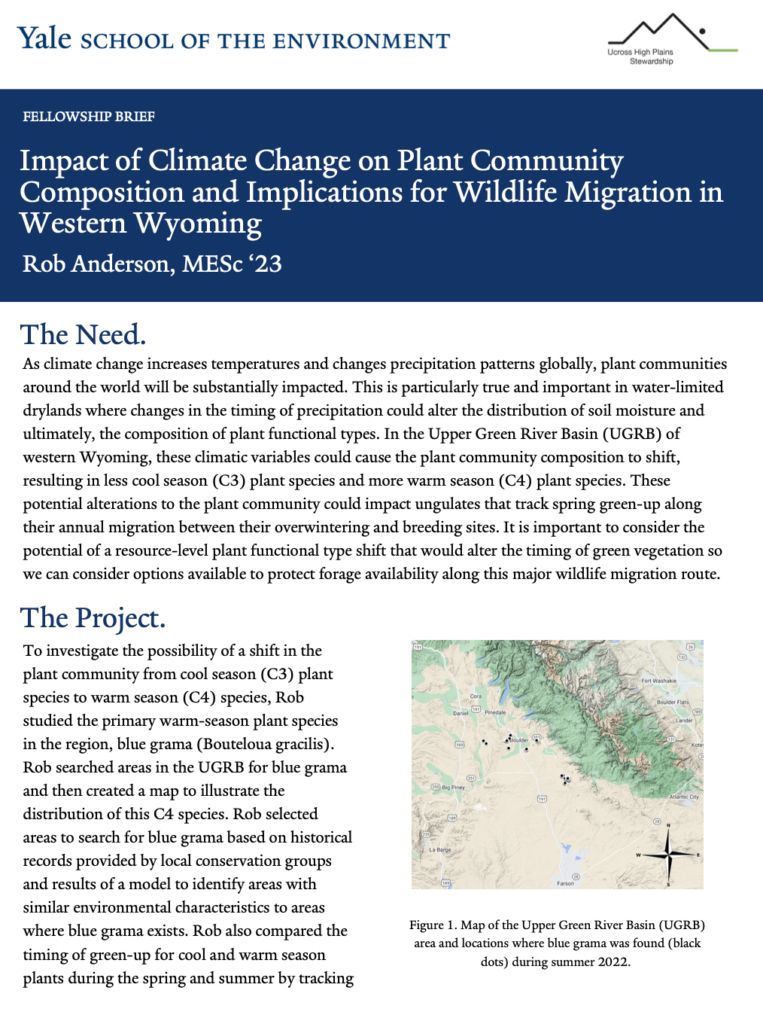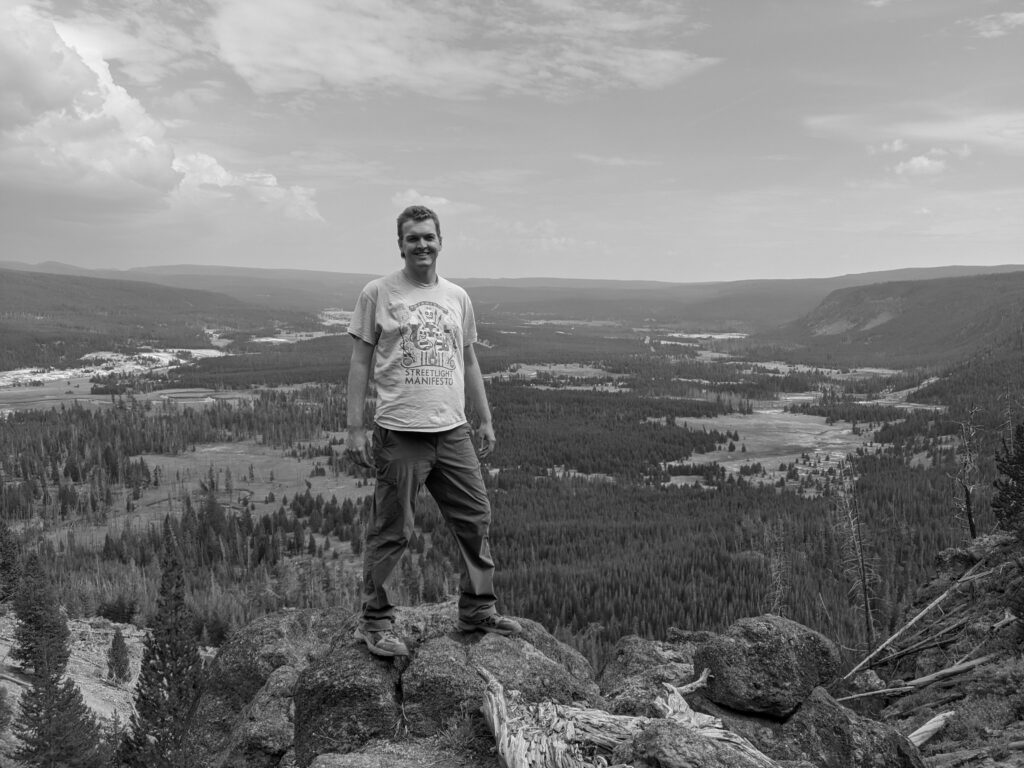Increasing temperature and changing precipitation patterns with climate change will have substantial impacts on plant communities, particularly in water-limited drylands. In western Wyoming, these climatic variables could result in a shift in plant community composition from cool season (C3) species to warm season (C4) species. Altered resource-level dynamics have the potential to then make changes to wildlife behavior, and migrating ungulates tracking spring green-up through the region could be particularly susceptible. Rob’s research investigated the potential of climate change to impact both the composition of plant functional types and wildlife habitat at the local level. Through finding sites containing C4 species and comparing the phenology and biomass of C3 and C4 species, Rob sought to answer questions pertaining to when food is available to herbivores and what locations are most susceptible to community shifts through climate change. Results of this research have been able to assist local conservation groups to ensure migratory ungulates have continued access to forage on their migration routes.
COLLABORATOR
PROJECT DELIVERABLE
FELLOWSHIP BRIEF

STUDENT RESEARCHER

Rob Anderson, Western Resource Fellow | Rob Anderson, Western Resource Fellow | Rob is a Master of Environmental Science candidate at the Yale School of the Environment. His thesis research combines simulation modeling and field research to assess the potential of climate change to alter the plant community phenology of Southwest Wyoming through shifts in functional type. He is interested in incorporating species interactions and climatic changes to conservation decision-making. Prior to coming to YSE, Rob contributed to the protection of shorebirds with Mass Audubon, and then came to the EEB department at Yale to work on a global biodiversity mapping project. He received his B.S. in Environmental Science from Northeastern University. See what Rob has been up to. | Blog
